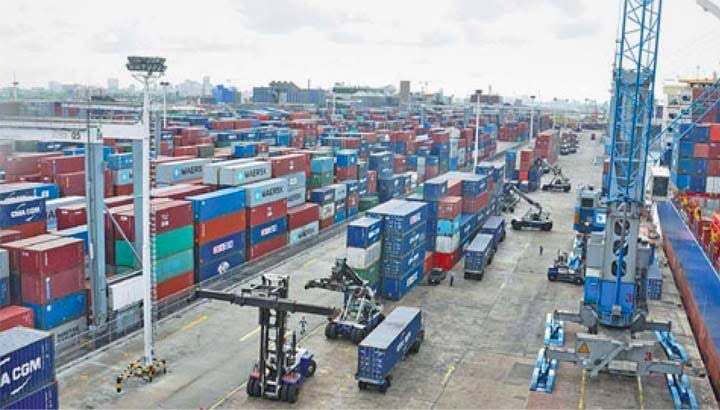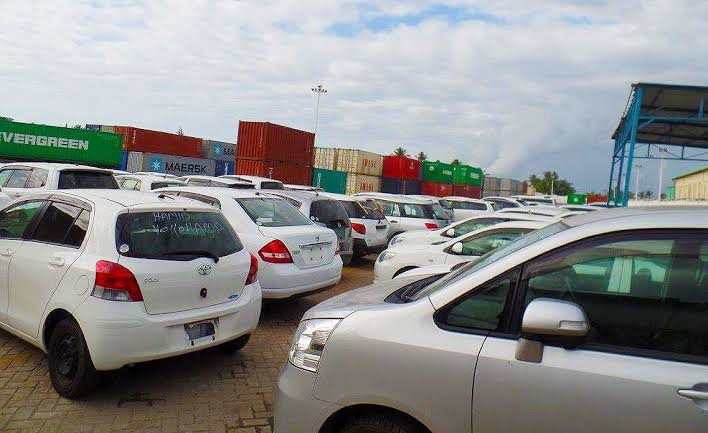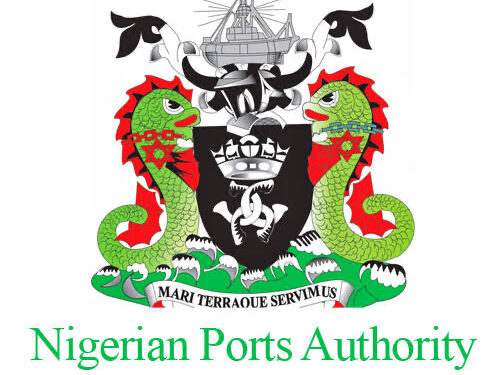Recent data obtained from the Nigerian Ports Authority has revealed a staggering drop in motor vehicle imports into the country, indicating a significant decline of 60.8 percent from 28,024 units in the first quarter of 2023 to just 10,991 units during the same period in 2024.
The document titled ‘Nigerian Ports Authority: Ports Performance Report January to March 2024’, obtained by Journalists on Monday also showed that Nigerian ports received 251 vessels in the first quarter of 2024.
According to the document, this figure represents a 4.3 percent decrease compared to the 275 vessels that visited the country’s ports during the same period in 2023.
“Vehicles importation dropped by 60.8 percent from 28,024 units in the first quarter of 2023 to just 10,991 units in 2024,” the document stated.

It also shows that total cargo volumes declined during the study period, indicating a decline in trade activity and may signal underlying economic challenges or a shift in the export-import balance.
The report said the 4.3% decline in vessel calls was due to a variety of factors, including “changes in global shipping routes, adjustments in shipping line strategies, or the impact of economic policies affecting maritime trade.”
In terms of cargo traffic, total cargo throughput excluding crude oil reached 21,186,348 tonnes in the 2024 reporting period, compared to 18,243,644 tonnes in the first quarter of 2023, an increase of 16.1%.
The report said that despite the decline in vessel traffic, performance indicators showed some positive trends over the same period, with average vessel turnaround time improving to 4.6 days from 5.1 days in 2023.
The data showed that part of this improvement was due to the Lekki Deep Seaport, where the average turnaround time was just one day, demonstrating its efficiency.
Berth occupancy rate averaged 29.8% in the first quarter of 2024, down from 34.5% in 2023. Lower lower berth occupancy rate indicates less congestion at the port, which may contribute to improved turnaround times and overall efficiency.

“The increase in gross register tonnage despite the drop in the number of vessel calls revealed the berthing of bigger vessels especially, at the Lekki Deep Seaport where the average GRT of vessels is 3, 801, 191.
“This further gives credibility to the importance of a deep sea to Nigeria’s maritime or port development. Therefore, the collective efforts of all the stakeholders are required to ensure that Lekki Deep Seaport does not suffer the fate of Apapa for ease of cargo evacuation,” the document concluded.
Reacting to the development, the leader of the Association of Licensed Customs Brokers of Nigeria, Kayode Farinto, said that auto imports would be lost due to exchange rate fluctuations.
“It is the fluctuating exchange rate that is killing the business. And if you bring in older vehicles now, you are expected to pay higher duty and the exchange rate continues to go up daily and nothing has been done to address that,” said Farinto.
According to him, the only remedy is for the government to set the exchange rate for cargo clearance at about 1,000 naira per dollar and extend the useful life of legal vehicles from 12 to 15 years, “that is when you would see improvement.”
Farinto added that if these issues are not addressed, smugglers will continue to import vehicles through unauthorized routes.
Chairman of the Ports and Terminals Multipurpose Branch of the National Council of Licensed Customs Brokers Executive Directors, Abayomi Doyle, said the decline was due to customs duties and tariffs on imported vehicles.
“It has to do with the levy introduced, the cost is too much. For example, if you have a vehicle of 15 or 20 years, you are going to pay the duty as if the vehicle is 10 years old. So it is because of the cost. When you bring them in, how do you sell them?” he asked.

































